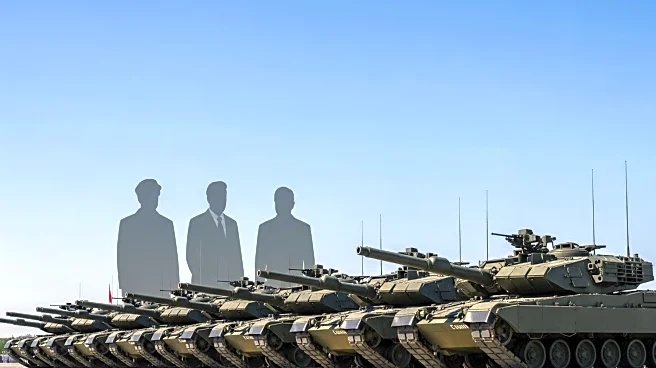What's Happening?
China recently held its largest military parade to commemorate the 80th anniversary of the end of World War II, showcasing its growing influence on the global stage. The event was attended by several world leaders, including Xi Jinping, Vladimir Putin, and Kim Jong Un, marking a significant display of unity among these nations. The parade featured advanced military hardware, including tanks, drones, and nuclear-capable missiles, signaling China's military prowess. The gathering of leaders from countries like Belarus, Iran, and Myanmar highlighted China's strategic alliances and its position as a formidable global power.
Why It's Important?
The parade underscores China's ambition to reshape the global order, challenging the traditional dominance of the United States. By aligning with Russia and North Korea, China is solidifying a bloc of anti-Western nations, potentially altering geopolitical dynamics. This shift could impact global human rights, as China's approach to sovereignty and non-interference appeals to autocratic regimes. The event also signals a potential end to US-China cooperation, particularly on issues like climate change, as China seeks to build alliances independent of Western influence.
What's Next?
China's growing influence may lead to increased tensions with Western nations, particularly the United States. The display of military might could prompt a reassessment of global security strategies, especially concerning Taiwan, which China claims as part of its territory. The parade may also encourage other nations to align with China's vision, further challenging US-led multilateral organizations. As China continues to expand its alliances, the global community will need to navigate the implications of a more assertive China on the world stage.
Beyond the Headlines
The parade highlights the ethical and human rights challenges posed by China's rise. As China gains influence, smaller nations may prioritize economic stability over democratic reforms, potentially leading to a decline in global human rights standards. The event also raises questions about the long-term impact of China's non-interference policy, which could embolden autocratic regimes and undermine efforts to promote universal values.









